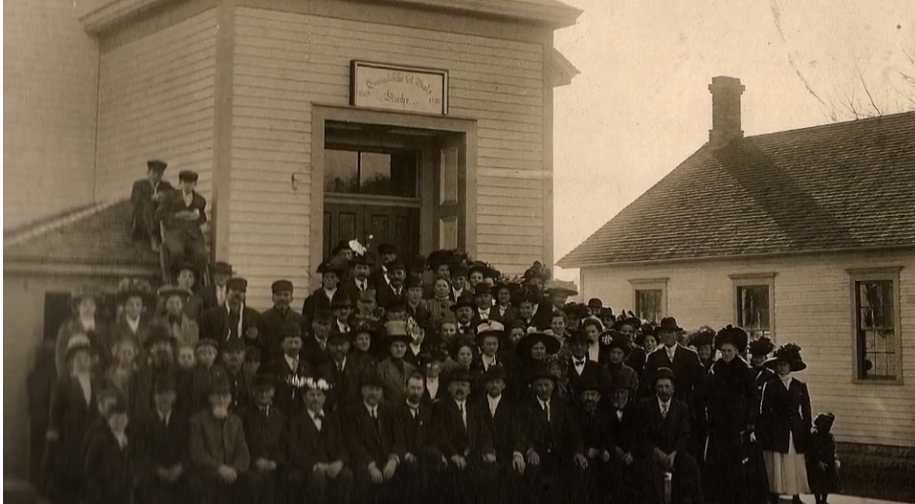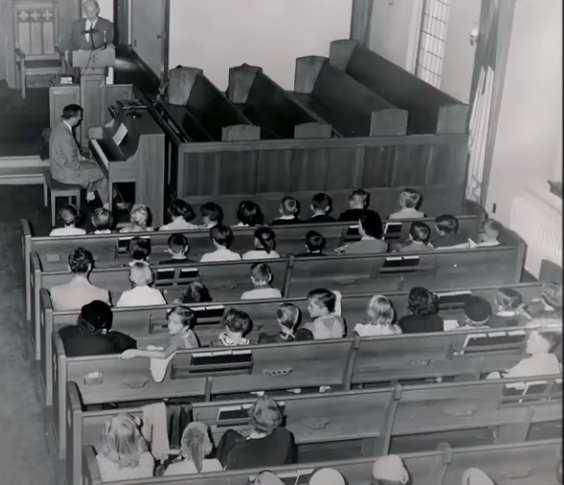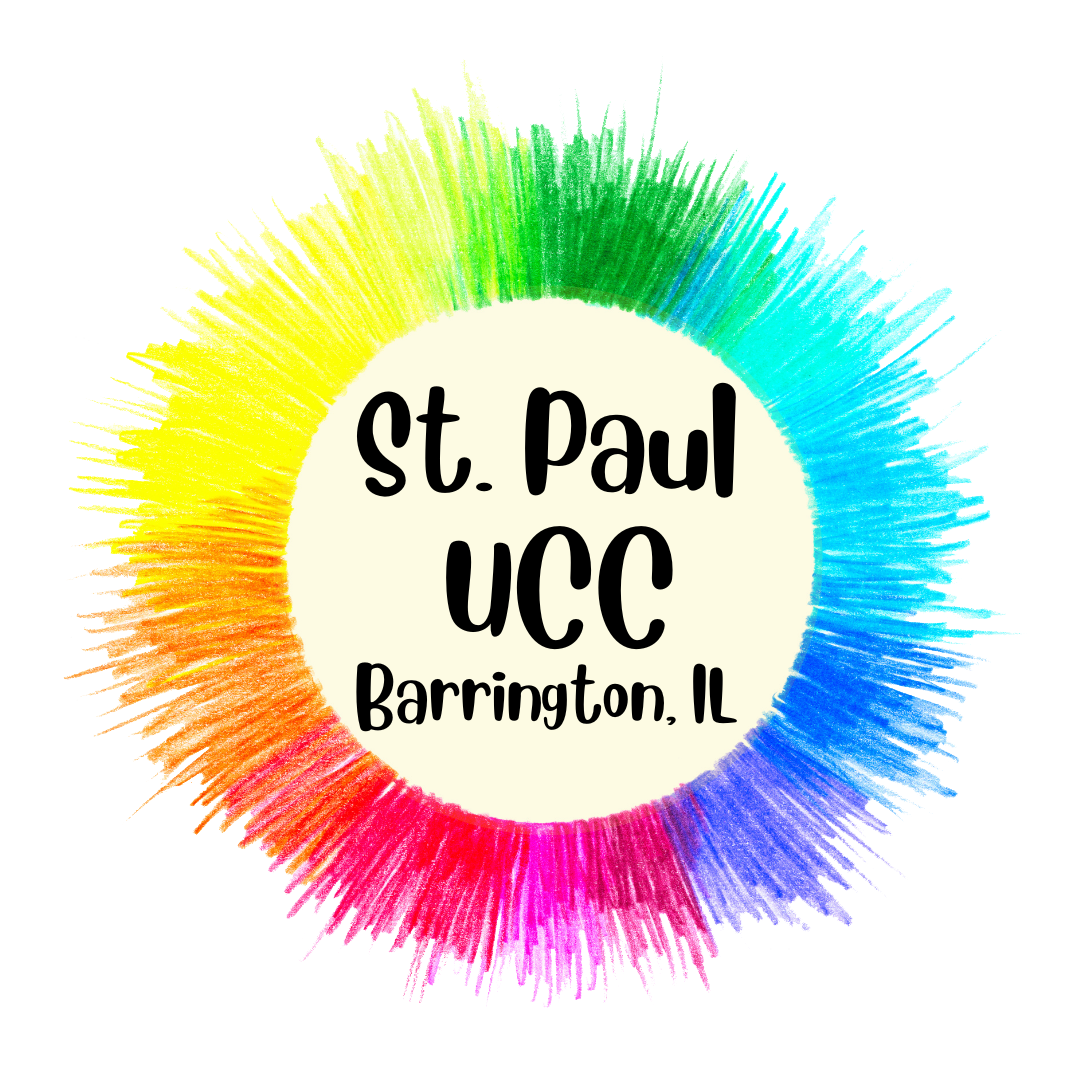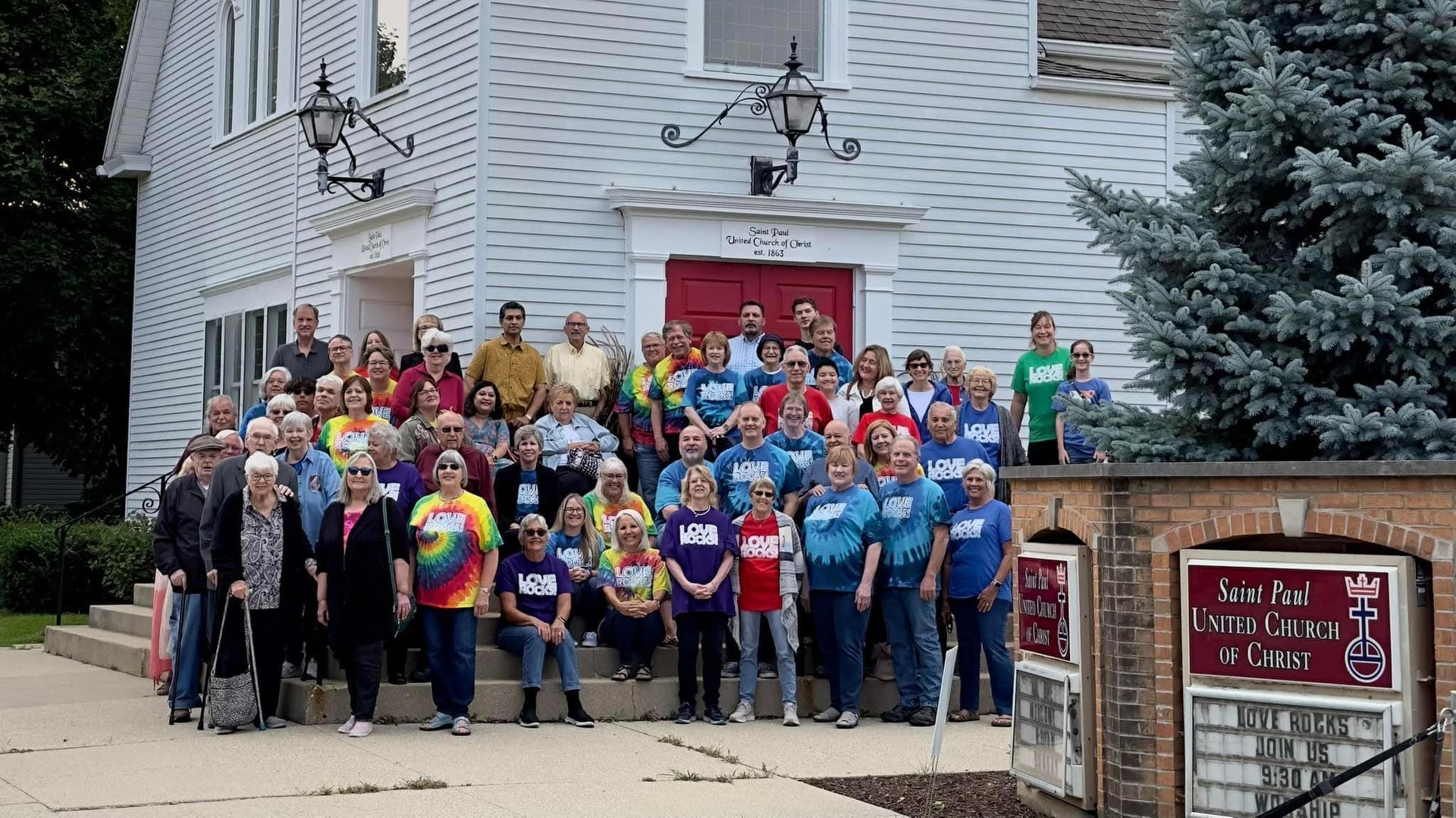St Paul's History
THE CHURCH BEGINS
The History of St. Paul United Church of Christ
THE CHURCH BEGINS

Saint Paul Church, Barrington, Illinois, was organized as a church in November, 1863, the same month that the townspeople voted to incorporate as the Village of Barrington.
St. Paul Church was formed by German settlers in Barrington Station and was originally a member of the German Evangelical denomination. The German Evangelical church first came to the United States along with the mass emigration of Germans fleeing widespread war and poverty in early 19th century Europe. It was first formed by King Frederick William III of Prussia on the 300th Anniversary (1817) of the Reformation, by uniting the Lutheran and Reformed Churches in Prussia, a merger which subsequently spread throughout the rest of Germany.
German was the official – and only – language spoken at St. Paul until 1916, when it first offered an English-language service on the fourth Sunday of each month. Minutes of the church council meetings would be not published in English until 1924. (On the church’s 50th anniversary in 1913, Kaiser Wilhelm II presented the church with a German-language bible which was kept locked away during the years of World War I for fear it would be vandalized.)
The German Evangelical Churches in this area soon became leaders in education (Elmhurst College), health ministries (such as the Evangelical Hospital Association which is now part of Advocate-Aurora Health Care, including Good Shepherd Hospital), and ministries to children (orphanages). They also became leaders in the Bensenville Home Society, a child welfare organization and a ministry to senior citizens in which St. Paul was a charter member; today, that ministry, (now known as LifeLink Charities) owns the Greencastle Senior Center, located just one block east of our church and still served by St. Paul through our Food Pantry and St. Paul Suppers ministries.

THE CHURCH GROWS

Despite financial struggles in its early years, St Paul Church established itself in the community. The cornerstone of its first church building was laid in 1865 at the same East Main Street location where the church resides today. A parsonage and school were added in 1872. Further renovations and expansions continued through the first few decades of the 20th century, including the addition of a basement and a larger steeple with a bell that still hangs there today.
Eventually, St. Paul grew to welcome over 700 members. Sunday school classes were so large that dividers were placed in some rooms to allow enough classroom space for all children to attend.
The church continued to offer German language services through 1941, with the final such service taking place on Christmas Eve of that year.
Our involvement with the Good Shepherd Hospital continued through helping at the newly established Catchpenny resale shop, and the congregation began to participate in an Adopt-a-child program through Bensenville Lifelink.
The first half of the 20th century also saw changes and expansion in the Evangelical denomination. In 1934, the Evangelical Synod of North American merged with the General Synod of Reformed Churches to form the Evangelical and Reformed Church.
A few years earlier, 1931, the Congregational and Christian Churches had merged to become the General Council of Congregational Christian Churches.
In 1957, these two groups – comprised of four, originally distinct, denominations - joined together to become what is now the United Church of Christ. The major change with the 1957 merger was in polity – the governance system of the church. St. Paul adopted the new system which kept parts of each denominational tradition - primarily the E&R Synod system (which calls all the churches in the denomination together every two years to set policy for the denomination) and the Congregational system (which places the responsibility for large church decisions in the hands of the congregation.) One of the hallmarks of the UCC is that each church is fully autonomous – meaning we relate to the denomination’s judicial structure, but the decision for each church is made at the local level and cannot be infringed upon by the denomination.
The first woman was ordained in what would become our tradition in 1853. Her name was Antoinette Brown. William Johnson was the first gay person ordained in the UCC in 1972, and the denomination officially became Open and Affirming (ONA) in 1987. The ONA designation means that congregations, campus ministries and other bodies within the UCC make a public covenant to welcome persons of all sexual orientations, gender identities and gender expressions into their full life and ministries. Due to our polity, each church, association or each conference is allowed to make its own decision about becoming ONA.
THE CHURCH TODAY
Today, St. Paul United Church of Christ continues to reflect the values and traditions that have been its hallmark since first opening our doors in 1863.
Our primary focus is on Missions and Local Community Outreach– providing charitable services to those in need. Some of the services we currently provide are:
- Our Thanksgiving Box distribution, launched in 2010, provides families with food and supplies for a full Thanksgiving dinner. This program served 285 families in 2024.
- St. Paul Suppers, launched in 2013, provides Sunday evening meals to residents of Palatine’s Journeys homeless shelter. We prepare and deliver meals for over 200 individuals each month.
- Our Food Pantry ministry was launched in 2021. Each month, we hand out up to 120 bags of food or household supplies to families and Greencastle Senior Center residents.
Since 2006, 0ur Adult Education classes have been our fastest growing educational opportunity. Current offerings include a twice-monthly book discussion group (held from September to May) and the summer Docu-Talk series where we view and discuss documentary films on topics relevant to our faith practice.
At St. Paul, we strive to adapt to the prevailing times and to speak to the current culture through a focus that is rooted in scripture. Since the early 2000s, we have consistently become more liberal and progressive in both theology and thought.
We officially became an Open and Affirming congregation with the acceptance of our ONA Covenant in May 2019. We first participated in PRIDE Events in June 2019 with the inaugural Pride Parade of Buffalo Grove; more recently, we have participated in Woodstock’s PRIDE celebrations. Prior to the 2015 legalization of same sex weddings, St. Paul participated in covenanting services and civil unions for same sex couples. The first legal same sex marriage
was held in the sanctuary of St Paul in July of 2015.
In this same time period, St. Paul has evolved from being a Barrington-focused church to a more regionally focused church. Member and friends of St. Paul come from more than 10 other cities throughout northeastern Illinois.
401 East Main St, Barrington, IL 60010
© 2025 St. Paul United Church of Christ - All Rights Reserved.
St Paul UCC is an open and affirming community of the United Church of Christ
OFFICE HOURS
Mon - Closed
Tue - 9am to 4pm
Wed - 9am to 4pm
Thu - 9am to 3pm
Fri - Closed
Sat - Closed
Sun - 8:30am to 11:30am
St. Paul United Church of Christ is a safe and welcoming congregation, strong in God’s spirit and grace. We invite you to join us in any of our many activities. Services are on Sundays and can be attended live or online. We are an open and affirming church so you can be who you were born to be. Our ministries are extremely important to our members, as well as the Barrington, Illinois surrounding communities. Although we are a small community, we are life changing and we are called to serve. Each year we feed hundreds of families with Thanksgiving baskets, St. Paul Suppers, and through our Food Pantry. If serving the hungry is important to you, then check out St. Paul United Church of Christ Barrington. Our music program is second to none, with a full choir, male choir, and handbells choir. St. Paul Barrington also plays a large role in supporting outside ministries. We’re active in Pride Parades, Fourth of July festivities, and other community activities throughout the year. If you are looking for a United Church of Christ or a church in Barrington, IL, come visit St. Paul United Church of Christ. Located behind the Barrington Metra train station, we are just a short commute away. Contact the St. Paul UCC office for any additional details.

